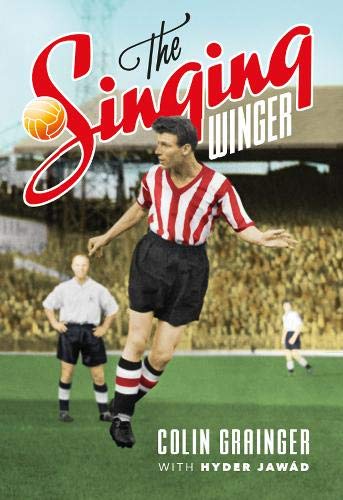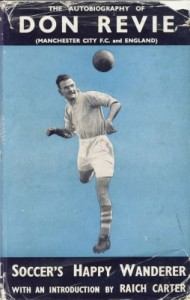Book Review: Jordan Henderson: The Autobiography by Jordan Henderson
 What makes a great football captain? Is it the best player in the team or the most consistent? The loudest voice or the best communicator? Someone who plays with their heart or their head? The person who leads by example on the pitch or off it? In truth, ideally it is a combination of all of these things, and more besides. Names like Tony Adams, Roy Keane, Wes Morgan, Vincent Kompany and Steven Gerrard often feature in discussions of the Premier League’s greatest captains. These are players who not only won trophies for their clubs but also led their teams physically and emotionally – they became, in a way, extensions of the badge. Tony Adams was Arsenal, Roy Keane was Manchester United, Wes Morgan was Leicester City. They were the figureheads for their clubs, undoubted leaders on the pitch with personas that matched. Each had his own style, his own challenges to face and each left an enviable footballing legacy. These are big boots to fill, but arguably Jordan Henderson has not only filled these boots but made them even bigger.
What makes a great football captain? Is it the best player in the team or the most consistent? The loudest voice or the best communicator? Someone who plays with their heart or their head? The person who leads by example on the pitch or off it? In truth, ideally it is a combination of all of these things, and more besides. Names like Tony Adams, Roy Keane, Wes Morgan, Vincent Kompany and Steven Gerrard often feature in discussions of the Premier League’s greatest captains. These are players who not only won trophies for their clubs but also led their teams physically and emotionally – they became, in a way, extensions of the badge. Tony Adams was Arsenal, Roy Keane was Manchester United, Wes Morgan was Leicester City. They were the figureheads for their clubs, undoubted leaders on the pitch with personas that matched. Each had his own style, his own challenges to face and each left an enviable footballing legacy. These are big boots to fill, but arguably Jordan Henderson has not only filled these boots but made them even bigger.
NHL Hall of Famer Joe Sakic said, ‘A… team needs a voice, not only in the community, but more importantly between the coaching staff and the players.’ Whilst the triptych remains – players, staff, community – the emphasis on community has grown in recent years, not least as a result of the pandemic. And Henderson’s voice has been at the forefront of bridging a link not only with Liverpool fans, or even football fans, but with wider society, through his work on the #PlayersTogether NHS initiative and fund. If there is one takeaway from Henderson’s recent autobiography, it is that he is quick to pass the plaudits around; like any great leader, he honours the work of others and downplays his own role. Yet Henderson was at the heart of football’s rallying for the NHS and, coupled with the incredible success under his captaincy at Liverpool, which has included the full gamut of top-tier trophies on offer – Premier League, FA Cup, League Cup, Community Shield, Champions League, European Super Cup and Club World Cup – the former won for the first time in three decades for the Reds, the latter won for the first time ever – his is a legacy that carries exceptional significance not only on the pitch but beyond football, not only in Liverpool but nationwide.
In many ways, Henderson’s impressive leadership has made him not only a figurehead for his club but a figurehead for the football community and he’s a warm, likeable and modest one at that, as evidenced throughout the compelling autobiography. Indeed, had Henderson had his way, this book, rather than bearing his name, would have been titled With or Without Me. No, it’s not a homage to U2’s ‘With or Without You’ but rather an acknowledgement of Henderson’s belief that Liverpool’s success would have happened with, or more importantly without, him. This may come across as false modesty from some and I’m not sure there would be many other Premier League and Champions League winners who would be so quick to write off their influence, but from Henderson it’s a genuine marker of the man – his lack of pretension, his sense of humility and his respect for his peers. I suspect, though, that while Henderson believes the success could have happened without him, his teammates, fans and manager would vehemently argue the toss. After all, Henderson has been at the beating heart of Liverpool’s midfield (and even, when called up on, their defence) for over a decade. That’s an impressive enough feat at any team but to hold down that place in a side that has been repeatedly challenging for domestic and European honours speaks of just how integral and valued he is.
It is easy to forget too that Henderson and his career was in its relative infancy when he arrived at Anfield from Sunderland in 2011 and the task of making his mark and forcing his way into a Reds side looking to recreate Liverpool’s glory days would have daunted many. Henderson not only battled it out, but he turned around perceptions and then stepped up to fill perhaps the biggest void in recent Liverpool history when the iconic Steven Gerrard left. Henderson’s autobiography is testament to his determination, his endeavour and his responsibility. There’s also an incredible maturity, a willingness to accept his flaws and crucially work at them and to understand the importance of the team and to play his part.
There is much to enjoy in the book about life at Liverpool, the early days of Klopp’s reign, struggles with injury, memorable nights (for different reasons) in Kyiv and Madrid and that compelling first Premier League title in thirty years, but what defines Henderson are his values and his ethos. He speaks eloquently and honestly on everything from the pressures of social media and the challenges of criticism to racism, the failed Super League and the privileges of being a footballer. His words carry weight, as do his actions, and on and off the pitch he epitomises what it means to be a captain, what it means to be a leader, what it means to be a role model. With him, Liverpool have experienced one of their most successful periods in history – a coincidence, I think not. Without him, this would have been a very different story.
With or without him? I suspect Liverpool fans would say with him, 100%.
Jade Craddock
(Publisher: Michael Joseph. October 2022. Hardcover: 336 pages)
Buy the book here: Jordan Henderson
 In 1914 one of Britain’s most famous sportsmen went off to play his part in the First World War.
In 1914 one of Britain’s most famous sportsmen went off to play his part in the First World War.
 Nicklas Bendtner is perhaps not a major name in Premier League history and certainly not the icon he dreamt, even predicted, he’d become as a young boy head and shoulders above his compatriots in his homeland of Denmark. More of a cult figure, and a problematic one at that, even for Arsenal fans, where he spent the majority of his career, though Bendtner’s name may not be amongst football’s Hollywood elite, his life story is definitely one more suited to the big screen as his autobiography Both Sides makes explicit. Indeed, his early prowess and his move to boyhood club Arsenal which promised much, followed by his larger-than-life antics and headline-making behaviour off the pitch reads like a quintessential Hollywood story of an outsider’s rags-to-riches ascent and eventual fall from grace, with so many outrageous episodes you’d be forgiven for thinking this was a movie script.
Nicklas Bendtner is perhaps not a major name in Premier League history and certainly not the icon he dreamt, even predicted, he’d become as a young boy head and shoulders above his compatriots in his homeland of Denmark. More of a cult figure, and a problematic one at that, even for Arsenal fans, where he spent the majority of his career, though Bendtner’s name may not be amongst football’s Hollywood elite, his life story is definitely one more suited to the big screen as his autobiography Both Sides makes explicit. Indeed, his early prowess and his move to boyhood club Arsenal which promised much, followed by his larger-than-life antics and headline-making behaviour off the pitch reads like a quintessential Hollywood story of an outsider’s rags-to-riches ascent and eventual fall from grace, with so many outrageous episodes you’d be forgiven for thinking this was a movie script.
 In other books within this Amberley series the subject has either been a legendary player or a manager, but in this edition the focus is on Brian Clough who it could be argued is a rarity in having an extraordinary career in both areas of the game.
In other books within this Amberley series the subject has either been a legendary player or a manager, but in this edition the focus is on Brian Clough who it could be argued is a rarity in having an extraordinary career in both areas of the game. In the modern age football feels like it is at saturation point in terms of coverage. Every detail about a player, manager or club is scrutinised to an infinite degree, so much so that nothing feels new, fresh or indeed inspiring.
In the modern age football feels like it is at saturation point in terms of coverage. Every detail about a player, manager or club is scrutinised to an infinite degree, so much so that nothing feels new, fresh or indeed inspiring. This book isn’t as one might expect written at the end of his playing days, but in 1955 during his spell at Maine Road. One of the first things to say and stands out is that he book is very short and divided up into numerous chapters which are in many cases 2 to 3 pages long and rather frustratingly, left me wanting to know more. Overall, the language does have a dated feel about it, as illustrated when Revie talks about the “chaps”. But life was so much different then and so was the English language and you have to realise that this was written over half a century ago.
This book isn’t as one might expect written at the end of his playing days, but in 1955 during his spell at Maine Road. One of the first things to say and stands out is that he book is very short and divided up into numerous chapters which are in many cases 2 to 3 pages long and rather frustratingly, left me wanting to know more. Overall, the language does have a dated feel about it, as illustrated when Revie talks about the “chaps”. But life was so much different then and so was the English language and you have to realise that this was written over half a century ago.